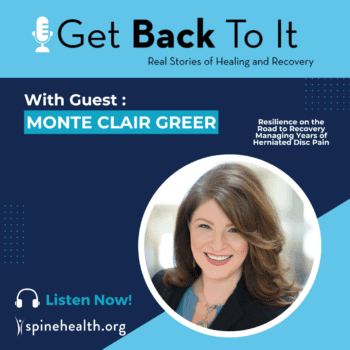
Chronic back pain is something millions of Americans deal with on a daily basis. It is the leading reason for people to miss work and pushes healthcare costs to astronomical rates each year. Chronic back pain can originate from several different conditions, including spinal arthritis, herniated disc, degenerative disc disease, spinal stenosis and a number of other things.
No matter how it occurs, the goal is to get rid of it. Surgery is always an option, but before heading straight to the table, spine specialists usually advise patients to consider less invasive ways to manage or fix your chronic back pain. This is true for conditions that are chronic, not traumatic injuries or those that require emergency surgical intervention. Yes chronic pain can lead to irreversible neurological deficit or even paralysis; that’s why it’s very important to seek the advice of a trained and reputable spine surgeon. At the National Spine Health Foundation, we believe in educating American about the fact that there is a wide variety of solutions. Different things work for different people, so we encourage patients to consult with their doctors to develop a solution that is unique and personalized to their needs.
5 Ways to Manage Chronic Back Pain
Anti-inflammatory drugs. Some over-the-counter anti-inflammatory drugs to try include Aspirin, Ibuprofen (this includes Advil, Motrin & Midol) and Naproxen (which includes Aleve and Naprosyn.)
Physical therapy. Health insurance usually covers physical therapy. Even though it can be time-consuming, it can be well worth your time investment to find the relief you need. PT’s work with a wide variety of bodies everyday and they can often pinpoint the issue when you can’t. Stay consistent and committed to the work they give you to do.
Rest and ritual. Sometimes we need a break. For athletes especially, it’s important give our bodies the rest they need to repair. If something has torn or broken down, full healing makes all the difference. In this down time, create new rituals of meditation and mindfulness to help center the mind in healing and relief.
Change habits. Habits can often be the culprit for chronic pain issues. How do you sit at your desk? In the car? What position do you sleep in? How is your posture? How often do you stand up and stretch during the day? Check all your bodily habits and make small changes. These can begin to relieve pain and give you your life back.
Steroid injections. An epidural steroid injections means injecting a local anesthetic and medication into the space surrounding the spinal cord and nerve roots. These injections reduce inflammation and can help improve mobility. They can be very helpful as you participate in other activities, like physical therapy, to help deal with pain.
These are just a few of the many tools that trained professionals can advise or administer to you in managing your chronic back pain. If you are in severe pain and unable to live your life, speak with your doctor about more timely treatments that can help. Weigh your options, but know that spine health treatment has improved immensely and there is hope to be free from or manage your pain in a way that gets you back to the people and activities you love-that gets you back to your life.



